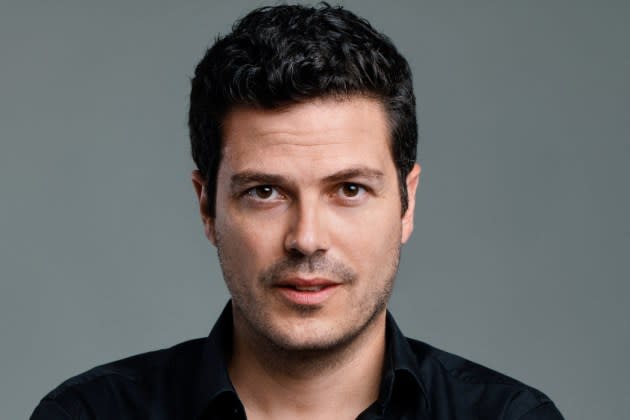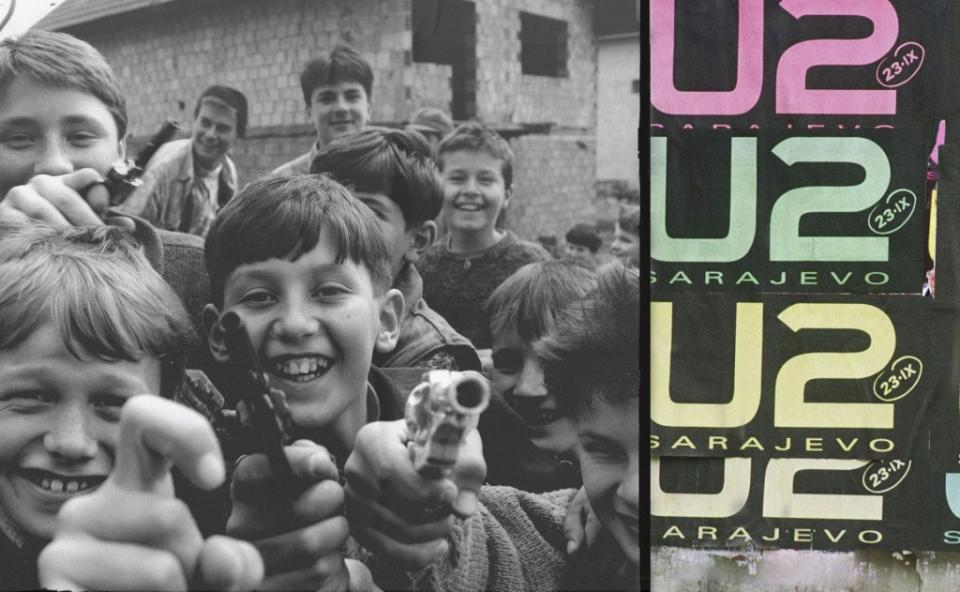Sarajevo Film Festival Commemorates Its Wartime Beginnings, but Keeps an Eye on the Future: ‘We Have a Responsibility to Look at That History’
- Oops!Something went wrong.Please try again later.

When the Sarajevo Film Festival returned to full strength last year after successive, slimmed-down pandemic editions, a robust turn-out was to be expected. For nearly three decades, the audience-facing event has been the cultural lifeblood of the lively, cosmopolitan city it calls home.
The 2022 edition broke attendance records set in 2019, and just days after its online ticketing system launched this month, the fest appears on pace to surpass that mark again. It is a testament to the enduring love affair between a city and a festival that was founded in impossible circumstances in 1995, at the tail end of a brutal, four-year siege — proof that even in times of war and scarcity, cinema could endure.
More from Variety
Cinderella-like Tale 'Rift in the Ice' Looks at How Ice-skaters Are 'Sexualized and Objectified'
U2's Bono Wows Crowd, Serenades Sarajevo in Surprise Appearance at Bosnian Film Festival
The festival returns Aug. 11 – 18, with organizers insisting the event’s 29th edition will stay true to its roots. “We wanted to keep the festival focused on its main goals: presenting the best of cinema today to our audiences in Sarajevo and providing a platform for the film industry in the region to be a window to the world,” says festival director Jovan Marjanović, who took the reins from founder and long-time head Mirsad Purivatra last year.
Forty-nine films will vie for Heart of Sarajevo Awards across the festival’s competition strands, with 11 titles competing in the feature film category, including two world premieres, one international and five regional premieres. Organizers fielded a record 935 submissions — a 25% bump from last year.
World premieres include “Europa” from Austrian-Iranian filmmaker Sudabeh Mortezai, whose credits include 2018 Venice Days entry and London Film Festival winner “Joy,” and “Medium,” the sophomore effort from Greek director Christina Ioakeimidi. Other highlights include Serbian filmmaker Vladimir Perišić’s Cannes Critics’ Week selection “Lost Country,” Georgian director Elene Naveriani’s Cannes Directors’ Fortnight title “Blackbird Blackbird Blackberry” and Greek director Sofia Exarchou’s “Animal,” fresh off a premiere in competition at Locarno.
The festival opens Aug. 11 with “Kiss the Future,” director Nenad Cicin-Sain’s documentary, produced by Ben Affleck and Matt Damon, about the band U2’s relationship with war-torn Sarajevo in the 1990s. Based on American-born aid worker Bill Carter’s “Fools Rush in: A Memoir,” the film chronicles the band’s efforts to publicize the plight of the city’s besieged civilians during the Bosnian War.
It’s a fitting selection for a festival that, perhaps even more than in recent editions, is reflecting on the past. This year organizers will commemorate the 30th anniversary of the Apollo war cinema, a makeshift movie theater that was established during the siege in the basement of the Sarajevo Academy of Performing Arts and was a precursor to the Sarajevo fest. “We have a responsibility to look at that history,” explains Marjanović. “A festival that started during wartime, besieged and deprived of the most basic of human needs. To make a festival under such circumstances, it has to be part of its DNA going forward.”
Among the recipients of honorary Heart of Sarajevo Awards will be filmmaker and historian Mark Cousins (“The Story of Film”), who visited the Bosnian capital as director of the Edinburgh Film Festival during the ’90s and screened films at the Apollo in a show of support for the besieged city. Cousins returns to Sarajevo for the first time in 29 years to receive the award.
Marjanović admitted that organizers had to scrap “a few” guests it was hoping to invite this year due to the SAG-AFTRA strike. “It was quite unclear how their participation in the festival would work,” he says, noting that masterclasses — which typically include movie clips and wide-ranging conversations about actors’ careers — might have run afoul of the union’s prohibition on film promotion. “That took some time to understand what can be done and what cannot be done.”

This year’s edition nevertheless doesn’t lack for star power, with honorary Heart of Sarajevo Awards going to Oscar-winning screenwriter and director Charlie Kaufman (“Eternal Sunshine of the Spotless Mind”), who will attend an open-air screening of his Oscar-nominated “Adaptation,” and Scottish director Lynne Ramsay (“You Were Never Really Here”). The jury for the main competition, meanwhile, will be headed by Mia Wasikowska, who stars in Jessica Hausner’s cult thriller “Club Zero,” a sensation at this year’s Cannes Film Festival, which will also play in Sarajevo.
As the festival approaches its 30th anniversary, Marjanović is focused on its legacy. To that end, he points to the launch in 2021 of an annual TV award ceremony with a voting body comprised of more than 450 film professionals from the former Yugoslavia — an attempt, he says, to create an equivalent of the Academy of Motion Picture Arts and Sciences or the British Academy of Film and Television Arts for the Balkan region.
“None of the countries in the former Yugoslavia have their own national film academy,” says Marjanović. “We don’t have guilds and syndicates that are so strong here. We have, obviously, many problems as a sector — people who work here, but also as creatives, also as individuals with freedom of speech and expression.”
The creation of a film and television academy, he says, would give the industry a powerful tool to lobby at the national, regional and European levels to “protect the interests of the sector” in the Balkans. It would also ensure that emerging voices in a region that has fought hard for its freedoms will continue to be heard.
“We want to ensure the transfer of knowledge from one generation to the next, include them into mentorship schemes, and really try and bring these generations together, and think how we move forward as creatives, as an industry,” says Marjanović.
“We want to take the next step in making something that will affect the region profoundly and leave a lasting legacy for a wider group of people — also outside of Sarajevo. I think it’s symbolic that it starts from here.”
The Sarajevo Film Festival runs Aug. 11 – 18.
Best of Variety
Sign up for Variety’s Newsletter. For the latest news, follow us on Facebook, Twitter, and Instagram.

